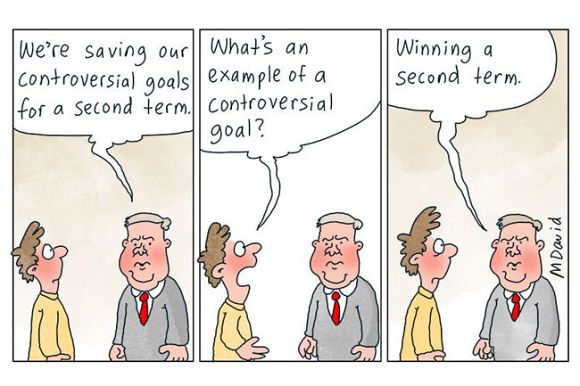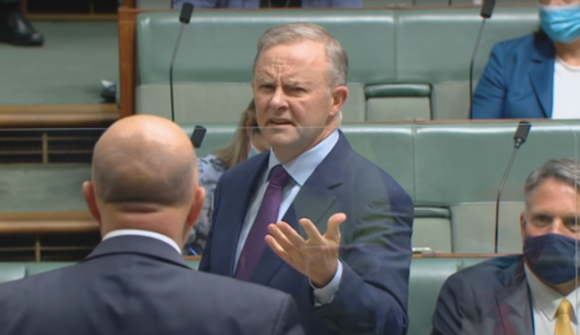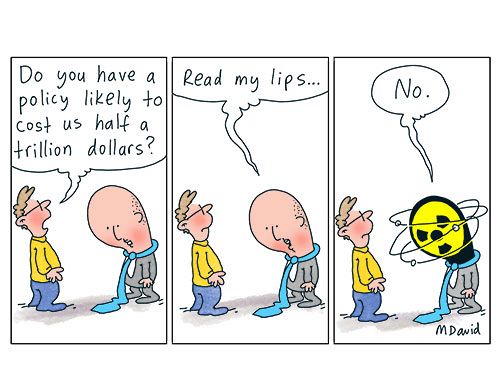The current Electoral Reform Bill may regulate financial donations better but it strengthens the unrepresentative party nature of the House of Representatives even more, writes Dr Klaas Woldring.
RECENT RESULTS IN STATE ELECTIONS suggest that the Australian Greens' initiated policies have concerned the major parties.
The recent Electoral Reform Bill, supported by both major parties, actually attempts to strengthen them. However, this is an unfavourable development for the Greens and for the entire political system.
The justification that the two-party system is part of the Westminster system is quite incorrect. The Westminster system is typical in that the political executive is “in and of the Parliament”. There is no prescription for the electoral system.
That is a separate issue as the reforms in New Zealand and South Africa in 1996 demonstrated. It is also obvious from several clauses in the Australian Constitution of 1901. This Reform Bill fails badly as far as the electoral system is concerned.
It is hard to understand that the Greens – who actually have Proportional Representation in their policy platform – are not campaigning for it.
Considering that they received 12.2% of the vote in the 2022 federal election — a properly designed proportional electoral system could yield them 18 federal seats instead of four now.
Their entire strategy seems still conditioned by the two-major party culture based on the Single Member District electoral system. Just how outmoded and plainly dangerous this system now is should also be obvious from the new nuclear policy by the Opposition Leader, Peter Dutton.
Australia's major electoral system has now generated the nuclear option, an expensive, slow and irrelevant energy alternative.
It would also detract from the various non-nuclear alternatives adopted by the Greens and the ALP. Dutton is busily engaged in preparing to drag Australia into the creation of unnecessary nuclear energy plants which would be developed in seven safe conservative electoral seats.
The use of the single-member electoral system is now planned for an energy system that is not supported by the majority. The role of the Opposition leader to develop opposing policies, the Westminster function of an Opposition leader, has resulted in quite unnecessary threats to endanger society.
Surely, the Greens fully understand the connection between the existing electoral system and this damaging policy initiative. Quite apart from that proportional representation is a much more democratic and fairer electoral system.
The Electoral Reform BiIl should be particularly targeted by the Greens, Independents and small parties.
From an environmental perspective, Australians surely can generate plenty of solar and wind energy. To try to use safe conservative seats for that negative purpose is political mismanagement.
Australians have also had enough of pork barrelling in marginal seats, of neglected safe seats, and of the fact that only a handful of seats are decided on the first count, the rest on compulsory preferences favouring the major parties.
Let's stop pretending that this is a fair and safe system. Australia can do much better. I made that clear in my submission to the Joint Standing Committee on Electoral Matters 2022.
Although entirely dominated by the major parties, only one Green is on that Committee. What we really do need is a Public Inquiry into the Electoral System in Australia.
This Joint Standing Committee always has a major party domination. What can one expect?
Australian voters have already turned their back on the Liberal Party, voted strongly for Independent women and the Greens in 2022, and by doing so, essentially said goodbye to the two-party system.
However, further reflection is needed as to what that means and what will replace it. The major parties are opposed to replacing the Single Member Electoral District system (SMD) with a much more democratic system.
Although it had a marginally positive election outcome for the ALP in 2022, as it still delivered its majority government in spite of a very low primary vote of 32.6%, it is further proof that major electoral system change is in fact long overdue.
90 countries have a proportional system. Even in the UK and the US the need for reform is widely recognised.
Certainly, the Greens perhaps most of the Independents as well, will now reflect on campaigning for a more democratic electoral system. For at least half the voters who are culturally diverse, the existing system is altogether of questionable value.
The current Electoral Reform Bill may regulate financial donations better but it strengthens the unrepresentative party nature of the House of Representatives even more.
The Greens need to speak up urgently. They are the party that stands to be damaged in particular.
The ALP's policy to cooperate with the conservatives to achieve this end with the Electoral Reform Bill is most disappointing. It is not in their own long-term interest either, quite the contrary.
Dr Klaas Woldring is a former associate professor at Southern Cross University and former convenor of ABC Friends (Central Coast).
 This work is licensed under a Creative Commons Attribution-NonCommercial-NoDerivs 3.0 Australia License
This work is licensed under a Creative Commons Attribution-NonCommercial-NoDerivs 3.0 Australia License
Support independent journalism Subscribe to IA.

Related Articles














